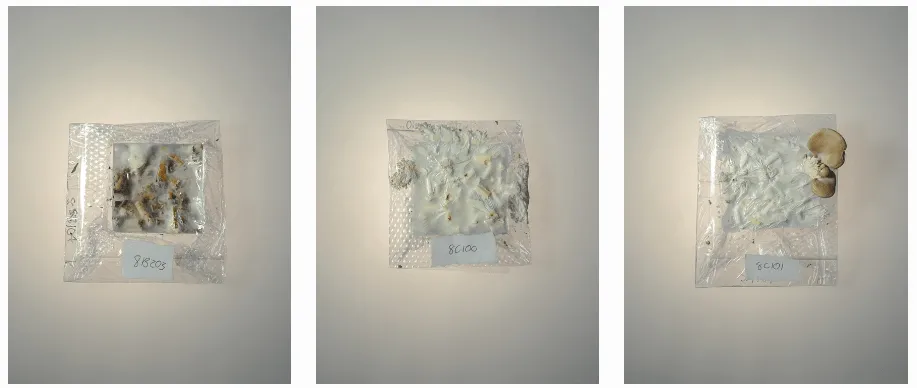Fungi Solutions

Fungi Solutions: A regenerative model for waste
It might seem like something from a science-fiction movie, but a patented strain of mushrooms has been trained to eat discarded cigarette filters!
Fungi Solutions founder Amanda Morgan and her team have trained mushrooms to grow on smokers’ discarded butts, while working to digest their harmful components, like nicotine. It’s an amazing solution to a problematic waste product which could see plastic cigarette filters recycled on a wide scale in the future.
While the project is still in its pilot phase, one of the key findings of the endeavour shows that mushrooms can be trained to digest plastic. In the environment, fungi naturally encounter the plant component cellulose. Fungi Solutions has worked to adapt that same fungus, teaching it to digest cellulose’s synthetic cousin – the plastic known as cellulose acetate.
Amanda, who co-founded biotech start-up Fungi Solutions in 2020, explains that fungi systems are composed of branching mycelium threads which spread gradually over the cigarette butts, while digesting cellulose acetate. “The fungi systems dismantle some toxic components in the butts, and render them non-toxic,” Amanda says. The only components which remain undigested are heavy metals such as zinc, copper, and lead. Fungi Solutions is continuing research on possible methods of harvesting and utilising these metals, in the quest for a perfect circular system. This would ensure that the remaining by-product of the mycelium and cigarette butt process is clean and entirely reusable.
It’s not the first experiment in myco-cycling which the team has undertaken: in fact, Fungi Solutions has been harnessing the power of mycelium to recycle organic wastes since its inception. Their mushroom-based packaging and wall insulations are made from the by-product of mycelium-recycled substrates, which are sourced from the agricultural industry. These might be sawdust, or hemp hurds. Once the mycelium has finished growing and digesting the organic waste, the material is heat-treated to create an inert, lightweight and insulating material that replaces single-use plastic or polyurethane packaging options. At the end of the product’s use, it can then be home-composted and improve the health of your soil!
Amanda, who studied fashion design and sustainable innovation at RMIT University, says that she came across the amazing potential of mycelium “by accident”: “I was looking for a way to use textile scraps!” she laughs. The fungi solution was extended to cigarette butts, after identifying them as a problematic pollutant which previously didn’t have any disposal solutions. In Australia, more than 8 billion cigarette butts are littered into the environment each year, where they immediately begin leaching harmful toxins into waterways and soil systems. Studies show that metal leachate from cigarette butts increases the risk of toxicity to aquatic organisms.
In collaboration with the not-for-profit No More Butts, Fungi Solutions has undertaken a trial of the cigarette-fungi process, working with Wollongong Council since 2021. Amanda reports that 138,000 butts have been collected, with a portion already remediated. Several venues are participating in collecting discarded butts, although Amanda mentions its harder to get individuals on board, since picking up a smoked cigarette is far from appealing!
The team envisage myco-cycling as a vigorous “onshore processing option” for the future, with the pilot processing facility in Melbourne just the beginning of their plans. “We are looking toward a regenerative model for recycling which covers rubber, textiles, organic waste and food waste,” Amanda emphasises. The idea is to turn waste into both resource and revenue streams while working to improve planetary health.
Of course, utilising mycelium to clean up our waste does raise some interesting questions of ethics. Is it likely that the mycelium is at all negatively impacted through the process? Amanda is well-aware of the issue, mentioning that although cellulose acetate may not be “a preferred food source”, the adapted culture does not seem negatively affected by its processing role and is able to continue fruiting and producing new generations of fungi.
Fungi Solutions is supporting Clean Up Australia’s Great Northern Clean Up, which runs over the cooler months from August to October in areas north of the Tropic of Capricorn. This year the GNCU has a focus on collecting cigarette butts – the most abundant plastic waste in the world. In collaboration with No More Butts, Fungi Solutions will be sending up some adapted fungi culture which will be remediating butts on site in Cairns.
To get involved, register a Great Northern Clean Up in your area and help us butt out Australia’s litter problem.
